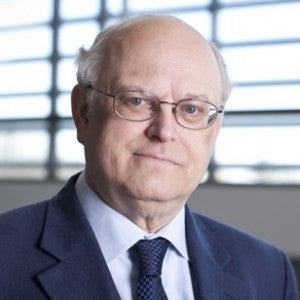When and Where:
- April 9, 2015, from 7:00PM to 8:30PM (1.5 hours)
- 1375 University Drive, Boise State University
- (ENGR) Engineering Building: Room 103
- No admission charge.
Thomas Sterling, Professor of Informatics and Computing and Chief Scientist of the Center for Research in Extreme Scale Technologies (CREST) at Indiana University, will present a talk on new strategies and advanced techniques to achieve exascale computing in the era of multicore heterogeneous computing.

Topic: Foundations and Future Directions for Exascale Computing
The impact of Moore’s Law long felt over decades through the exponential growth of such performance metrics as the Linpack benchmark is now being diminished even as the international supercomputing community seeks to achieve viable exascale capability computing by the end of this decade or soon thereafter. Conventional practices, while suitable for certain regular applications likely for the foreseeable future, have demonstrated inadequate efficiency and scalability for more dynamic and irregular classes of problems. Efficiencies less than 10% are routinely experienced for many real-world applications even as select benchmarks may exhibit efficiencies in excess of 80%. With the end of Dennard scaling and the approaching end of Moore’s Law near nano-scale semiconductor feature size, usual methods of parallel programming and resource management are unlikely to serve the full breadth of mission-critical problems in science and engineering, industry and commerce, and society and security. As strategies to supercomputing have adapted new techniques in response to opportunities and challenges due to changes in enabling technologies, so now in the era of multicore heterogeneous computing new strategies are required to achieve exascale computing. This presentation will discuss the potential for dynamic adaptive execution models to enable and drive the next generation of HPC architecture, programming models, and supporting system software. It will give results of recent research employing innovations in runtime systems that embody dynamic control principles to manage asynchrony of execution for unprecedented efficiency and scalability. The ParalleX execution model and the HPX runtime system will be used as an exemplar to demonstrate the form and potential of advanced techniques in improving delivered performance for an increasing range of problem domains including those demanding strong scaling. Questions will be welcomed from the audience throughout this presentation.
Biography:
Dr. Thomas Sterling holds the position of Professor of Informatics and Computing at the Indiana University (IU) School of Informatics and Computing as well as serves as Chief Scientist and Executive Associate Director of the Center for Research in Extreme Scale Technologies (CREST). Since receiving his Ph.D from MIT in 1984 as a Hertz Fellow Dr. Sterling has engaged in applied research in fields associated with parallel computing system structures, semantics, and operation in industry, government labs, and academia. Dr. Sterling is best known as the “father of Beowulf” for his pioneering research in commodity/Linux cluster computing. He was awarded the Gordon Bell Prize in 1997 with his collaborators for this work.